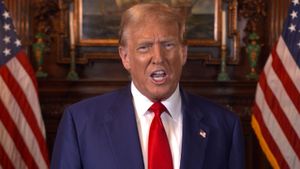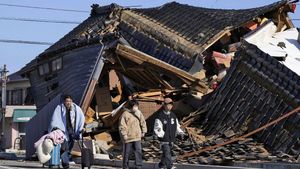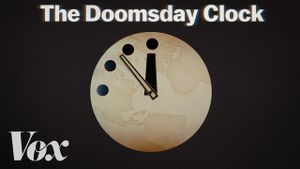Senator Lindsey Graham has voiced strong disapproval of former President Donald Trump’s pardons for individuals involved in the January 6 capitol riot, particularly those convicted of violent offenses. During appearances on both NBC’s Meet the Press and CNN's State of the Union, Graham articulated his concerns, stating unequivocally, "Pardoning the people who went to the Capitol and beat up a police officer violently, I think was a mistake. Because it seems to suggest that's an OK thing to do."
This stance marks a notable critique from Graham, who has long been regarded as one of Trump’s staunchest allies. He elaborated on the consequences of such pardons, expressing his fears about potential future violence stirred by the former president's decision. "I fear you will get more violence," Graham remarked on NBC, emphasizing the troubling message such leniency could send to the public.
Trump's blanket pardons, which were issued shortly after his inauguration on January 21, 2023, included around 1,500 individuals involved in the riot, with more than 200 of those facing serious charges, including assaulting law enforcement officers. Graham’s criticism extends beyond Trump; he took aim at President Joe Biden's own pardons issued for several family members, framing the issue as indicative of broader problems with the presidential pardon system.
The Republican senator draws attention to the discontent among the public and especially among law enforcement officials, noting their discomfort with pardoning those who committed violent crimes, particularly crimes against police officers. Graham’s concern seems to resonate with many Americans who view these pardons as abuses of the pardon power. Graham stated, "I think most Americans see this as abuse of the pardon power, and if this continues, we may have to revisit it." His comments indicate widespread worries about how such decisions might shape the nation’s legal and ethical standards.
Even within Republican circles, there is apprehension about the influence of these actions on law enforcement morale and public safety. Speaking to this sentiment, Graham articulated the need for balance when it involves pardoning individuals who have committed violent acts. He declared, "I don't like the idea of bailing people out of jail or pardoning people who burned down cities and beat up cops, whether you’re Republican or Democrat.”
Another prominent figure, Senator Adam Schiff (D-Calif.), echoed Graham’s sentiments, asserting on the same program, "What it says now to the Trump family and to President Trump’s kids: they can engage in any kind of malfeasance, criminality, graft, whatever, and they can expect a pardon on the way out the door." This statement adds weight to Graham’s argument, underscoring the bipartisan concerns surrounding the message these pardons send.
Critics of Trump’s decision are not confined to the Democratic party; Graham’s comments reflect the fears harbored even among Republican ranks about the normalization of pardoning violent offenders. This could lead to more sensational actions and a dangerous precedent where crime is seen as permissible if one later receives clemency. "Pardoning the people who went to the Capitol and beat up officers is unwise, as I said," Graham reiterated, highlighting the potential for increased violence as individuals might misinterpret the pardons as tacit approval of their actions.
The political fallout from these pardons remains to be seen. Should similar actions continue under future administrations, Graham warns, America might see significant questioning of the legitimacy and scope of presidential pardon power. The past few days have showcased how tightly intertwined the fate of Trump and Graham has become, yet Graham’s willingness to step back and evaluate this scenario from both ethical and practical perspectives speaks volumes about the current political climate.
With public opinion shifting and the boundaries of political power constantly tested, the dialogue surrounding pardons and their effects continues to evolve. Graham’s critiques serve as important reminders of the potential ramifications of such sweeping actions taken by any president, particularly those seen as controversial or divisive.
Moving forward, it remains to be seen how these dynamics will play out, not just for Trump but for future leaders who may grapple with similar decisions. Graham's position raises pertinent questions about accountability, public trust, and the integrity of law enforcement as the nation navigates the complex legacy of the January 6 insurrection.



